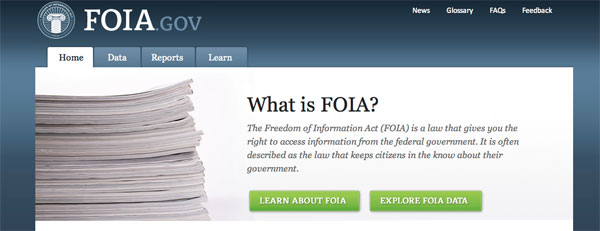 California’s Public Records Act survived a near miss last week. The EFF reports that the California legislature passed a bill last week that included a trailer to cut CPRA funding. The trailer bill would have made compliance with the CPRA optional for local governments.
California’s Public Records Act survived a near miss last week. The EFF reports that the California legislature passed a bill last week that included a trailer to cut CPRA funding. The trailer bill would have made compliance with the CPRA optional for local governments.
Thanks to pressure from activists, the bill was replaced, and the CPRA language removed. But it’s still sitting on Gov. Brown’s desk.
California’s Public Records Act, codified at Cal. Gov. Code §6250 et seq. is a state version of the Federal Freedom of Information Act (FOIA). It is designed to help citizens access the papers and records of state agencies. It covers all public records, defined in Cal. Gov. Code §6252 (e) as “any writing containing information relating to the conduct of the public’s business prepared, owned, used, or retained by any state or local agency regardless of physical form or characteristics.” It also includes “Writings,” defined at §6252(g) as “any handwriting, typewriting, printing, photostating, photographing, photocopying, transmitting by electronic mail or facsimile, and every other means of recording upon any tangible thing any form of communication or representation, including letters, words, pictures, sounds, or symbols, or combinations thereof, and any record thereby created, regardless of the manner in which the record has been stored.”

 The 10th Circuit decided an interesting FOIA case this week. In
The 10th Circuit decided an interesting FOIA case this week. In 
